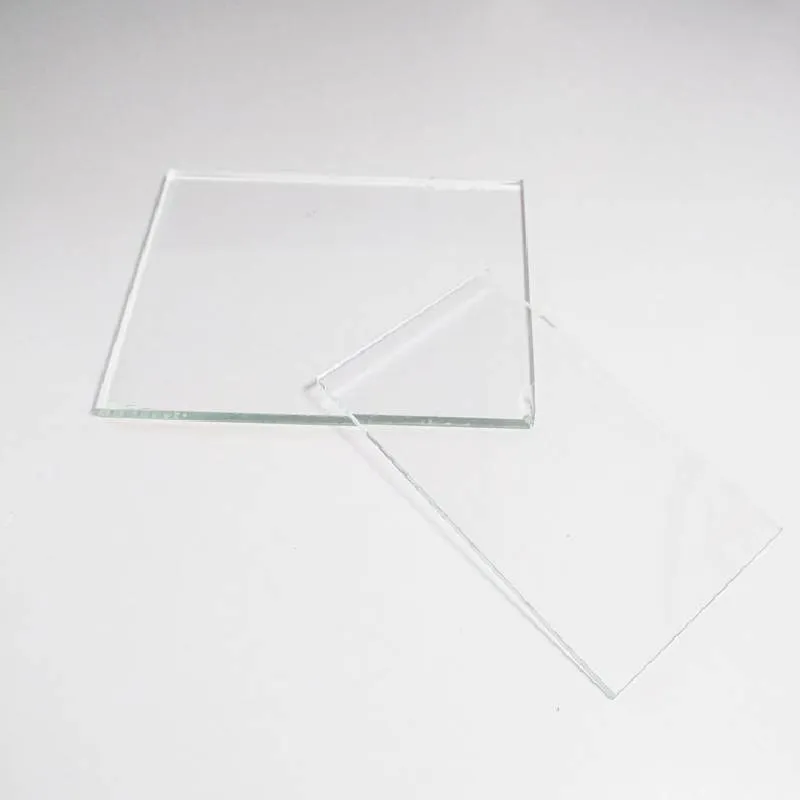Low Iron Glass The Future of Transparent Materials
In the realm of modern architecture and design, low iron glass has emerged as a revolutionary material, offering remarkable clarity and aesthetic appeal. As industries continue to seek solutions that combine functionality with visual excellence, low iron glass stands out for its unique properties and versatility.
Low iron glass, which is also known as ultra-clear glass, is a type of glass that contains significantly reduced levels of iron oxide compared to standard glass. This reduction is crucial as iron content is what typically gives glass a greenish tint. By minimizing iron, low iron glass achieves a transparency level that is nearly crystal clear, allowing for a more accurate color representation and enhanced light transmission. This quality is particularly prized in applications where visual aesthetics are paramount, such as display cases, facades, and interior partitions.
One of the most notable advantages of low iron glass is its ability to transmit up to 90% of visible light
. This feature makes it an ideal choice for daylighting solutions in architecture, reducing the need for artificial lighting and thereby minimizing energy consumption. Architects increasingly incorporate low iron glass into their designs to create spaces filled with natural light, fostering environments that enhance the well-being of occupants.
low iron glass
Low iron glass is also highly versatile, making it suitable for a wide range of applications. From residential buildings to commercial spaces and even automotive sectors, its clarity enhances the visual appeal of structures. Furthermore, its incorporation into energy-efficient designs bolsters sustainability efforts in the construction industry. Low iron glass is often utilized in high-performance double or triple-glazed window systems, which improve thermal insulation and reduce energy expenses.
Beyond its practical applications, low iron glass is celebrated for its aesthetic qualities. It allows designers and architects to create cleaner lines and unobstructed views, leading to an illusion of openness and continuity with the surrounding landscape. The material is also popular in contemporary art installations, where the interplay of light and transparency can dramatically influence the viewer's experience.
Moreover, the durability and strength of low iron glass contribute to its appeal. With advancements in glass technology, low iron glass can be treated for enhanced impact resistance, making it suitable for both interior and exterior applications. This resilience ensures that structures remain not only beautiful but also safe and sustainable over time.
In conclusion, low iron glass represents a significant advancement in the field of transparent materials. Its exceptional clarity, energy efficiency, versatility, and aesthetic appeal position it as a material of choice for modern architecture and design. As the demand for visually stunning and functional spaces continues to grow, low iron glass is set to play an even more crucial role in shaping the built environment of the future.
 Afrikaans
Afrikaans  Albanian
Albanian  Amharic
Amharic  Arabic
Arabic  Armenian
Armenian  Azerbaijani
Azerbaijani  Basque
Basque  Belarusian
Belarusian  Bengali
Bengali  Bosnian
Bosnian  Bulgarian
Bulgarian  Catalan
Catalan  Cebuano
Cebuano  Corsican
Corsican  Croatian
Croatian  Czech
Czech  Danish
Danish  Dutch
Dutch  English
English  Esperanto
Esperanto  Estonian
Estonian  Finnish
Finnish  French
French  Frisian
Frisian  Galician
Galician  Georgian
Georgian  German
German  Greek
Greek  Gujarati
Gujarati  Haitian Creole
Haitian Creole  hausa
hausa  hawaiian
hawaiian  Hebrew
Hebrew  Hindi
Hindi  Miao
Miao  Hungarian
Hungarian  Icelandic
Icelandic  igbo
igbo  Indonesian
Indonesian  irish
irish  Italian
Italian  Japanese
Japanese  Javanese
Javanese  Kannada
Kannada  kazakh
kazakh  Khmer
Khmer  Rwandese
Rwandese  Korean
Korean  Kurdish
Kurdish  Kyrgyz
Kyrgyz  Lao
Lao  Latin
Latin  Latvian
Latvian  Lithuanian
Lithuanian  Luxembourgish
Luxembourgish  Macedonian
Macedonian  Malgashi
Malgashi  Malay
Malay  Malayalam
Malayalam  Maltese
Maltese  Maori
Maori  Marathi
Marathi  Mongolian
Mongolian  Myanmar
Myanmar  Nepali
Nepali  Norwegian
Norwegian  Norwegian
Norwegian  Occitan
Occitan  Pashto
Pashto  Persian
Persian  Polish
Polish  Portuguese
Portuguese  Punjabi
Punjabi  Romanian
Romanian  Russian
Russian  Samoan
Samoan  Scottish Gaelic
Scottish Gaelic  Serbian
Serbian  Sesotho
Sesotho  Shona
Shona  Sindhi
Sindhi  Sinhala
Sinhala  Slovak
Slovak  Slovenian
Slovenian  Somali
Somali  Spanish
Spanish  Sundanese
Sundanese  Swahili
Swahili  Swedish
Swedish  Tagalog
Tagalog  Tajik
Tajik  Tamil
Tamil  Tatar
Tatar  Telugu
Telugu  Thai
Thai  Turkish
Turkish  Turkmen
Turkmen  Ukrainian
Ukrainian  Urdu
Urdu  Uighur
Uighur  Uzbek
Uzbek  Vietnamese
Vietnamese  Welsh
Welsh  Bantu
Bantu  Yiddish
Yiddish  Yoruba
Yoruba  Zulu
Zulu 

